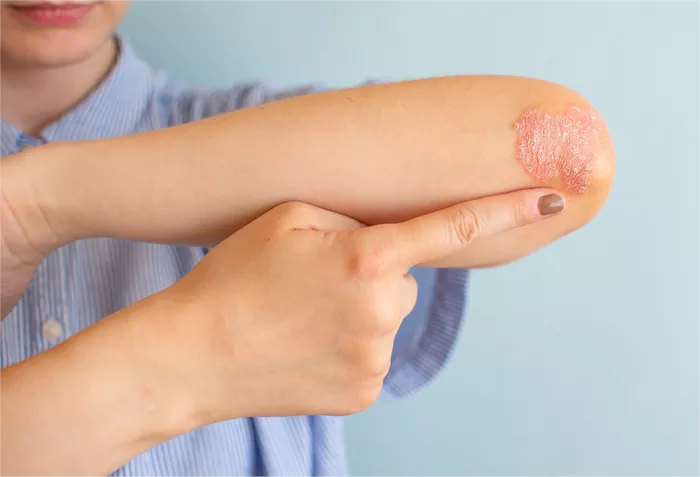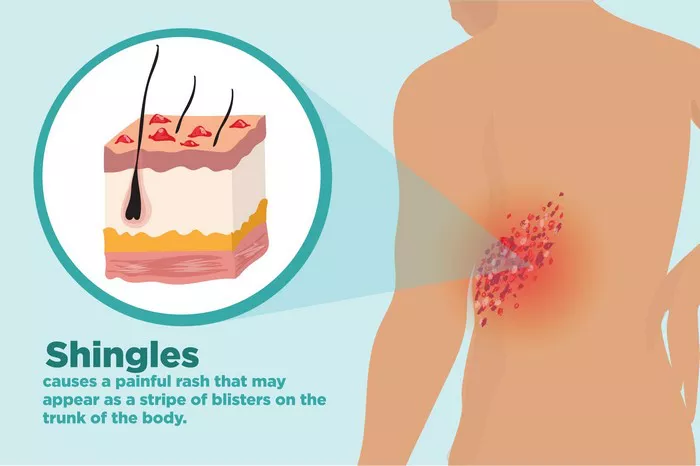Ringworm is a common fungal infection that affects the skin, scalp, and other parts of the body. Despite its name, ringworm is not caused by a worm, but by a type of fungus known as dermatophytes. It is highly contagious and can spread through direct contact with an infected person, animal, or contaminated objects. Although ringworm can cause discomfort and skin issues, it is rarely deadly. However, there are situations where ringworm can become serious if left untreated or if the person has other underlying health conditions. In this article, we will explore what ringworm is, how it spreads, its symptoms, complications, and whether it can be deadly.
What is Ringworm?
Ringworm is a fungal infection that affects the outer layer of the skin. It is characterized by a red, circular rash with raised edges, often resembling a ring—hence the name “ringworm.” Despite the name, it is not caused by a worm, but by a type of fungus called dermatophytes. These fungi thrive in warm, moist environments and are commonly found on the skin, hair, and nails.
There are different types of ringworm, depending on the area of the body affected:
Tinea corporis: This is the most common form, affecting the body.
Tinea capitis: Ringworm on the scalp, more common in children.
Tinea pedis: Also known as athlete’s foot, it affects the feet.
Tinea cruris: Ringworm in the groin area, also known as jock itch.
Tinea unguium: Ringworm of the nails.
Ringworm can be mild to severe, with symptoms ranging from minor irritation to extensive, painful lesions. It is important to treat ringworm early to avoid complications.
How Does Ringworm Spread?
Ringworm is highly contagious and can spread through several means. The most common ways the infection is transmitted include:
Direct Skin-to-Skin Contact: This is the most common way that ringworm spreads. If you touch an infected person, you can pick up the fungus from their skin.
Contact with Infected Animals: Pets, especially cats and dogs, can carry the fungus on their skin, fur, or nails. Handling an infected animal can transmit the fungus to humans.
Contaminated Objects: Fungi can live on surfaces such as towels, combs, brushes, and clothing. Sharing these items with someone who has ringworm can lead to infection.
Soil: In rare cases, the fungus can be contracted from soil that has been contaminated with the fungus.
Because ringworm is so easily transmitted, it is important to practice good hygiene to reduce the risk of infection.
Symptoms of Ringworm
The symptoms of ringworm vary depending on the type and location of the infection. However, common symptoms include:
Red, Circular Rash: A raised, red, ring-shaped rash is the hallmark of ringworm. The center may appear normal or slightly lighter than the surrounding skin.
Itching and Burning Sensation: The affected area can be itchy, and some people may experience a burning sensation.
Scaling and Cracking: The skin in the affected area may begin to peel or crack, especially if the infection is left untreated.
Hair Loss: If ringworm affects the scalp, it can cause hair loss in patches, leading to bald spots.
Blisters or Pustules: In more severe cases, small blisters or pustules may form around the infected area.
The symptoms can be uncomfortable, but they are usually not life-threatening.
Can Ringworm Be Deadly?
In most cases, ringworm is not deadly. It is a superficial infection that affects the outer layer of the skin and can be treated effectively with antifungal medications. However, in certain situations, ringworm can become more serious and lead to complications, especially in people with weakened immune systems or other health conditions.
Risk Factors for Severe Ringworm
There are several factors that can increase the risk of developing severe ringworm infections:
Weakened Immune System: People with weakened immune systems, such as those with HIV/AIDS, cancer, or who are on immunosuppressive medications, are more vulnerable to severe infections. In these individuals, ringworm may spread more rapidly or become harder to treat.
Poor Hygiene: Not keeping the skin clean and dry can create an environment in which fungi thrive, increasing the risk of infection.
Diabetes: People with diabetes may be more susceptible to fungal infections due to poor circulation and higher blood sugar levels, which can promote fungal growth.
Chronic Skin Conditions: Conditions like eczema or psoriasis can make the skin more prone to fungal infections, including ringworm.
Older Adults: The elderly may have a weakened immune response, which can make them more prone to severe infections.
While ringworm itself is not deadly, it can cause serious complications in individuals with these risk factors.
Complications of Untreated Ringworm
When left untreated, ringworm can lead to complications, some of which may require medical intervention:
Secondary Bacterial Infections: Scratching or breaking open the skin can allow bacteria to enter, leading to secondary infections. These infections can be serious and may require antibiotics.
Spread to Other Areas of the Body: If not treated, ringworm can spread to other parts of the body, including the scalp, nails, and even the face. This can lead to more extensive infections that are harder to treat.
Chronic Ringworm: Ringworm that is not properly treated may persist for a long time, causing ongoing symptoms such as itching, redness, and discomfort.
Scarring: In rare cases, severe or untreated ringworm can lead to permanent scarring, especially if the infection affects the scalp or nails.
Systemic Infection: In very rare cases, especially in individuals with compromised immune systems, the infection can spread beyond the skin and affect internal organs. This is extremely uncommon but can be life-threatening.
How is Ringworm Treated?
The good news is that ringworm is treatable. The type of treatment depends on the location and severity of the infection.
Topical Antifungal Creams: For mild cases of ringworm, over-the-counter antifungal creams, lotions, or powders are often effective. These medications are applied directly to the affected area and can kill the fungi causing the infection.
Oral Antifungal Medications: In more severe or widespread cases, oral antifungal medications may be prescribed. These medications work throughout the body to eliminate the infection from the inside out.
Antifungal Shampoos: For scalp ringworm, antifungal shampoos may be recommended in addition to oral or topical antifungal treatments.
Proper Hygiene: Keeping the infected area clean and dry is crucial in preventing the spread of the infection. Avoid scratching the rash, as this can introduce bacteria and cause further complications.
Disinfecting Household Items: To prevent reinfection, it’s important to wash clothing, bedding, and towels regularly and disinfect any items that may have come into contact with the infected area.
Preventing Ringworm
While it may not always be possible to prevent ringworm entirely, there are steps you can take to reduce your risk:
Practice Good Hygiene: Wash your hands frequently, especially after handling pets or coming into contact with people who may have ringworm.
Avoid Sharing Personal Items: Do not share towels, combs, brushes, or clothing, as these items can harbor the fungus.
Keep Skin Dry and Clean: Fungi thrive in warm, moist environments. After showering, make sure to dry your skin thoroughly, especially in areas prone to infection like the feet, groin, and underarms.
Protect Your Feet: If you are in a public area like a gym or pool, wear sandals or flip-flops to protect your feet from contact with the fungus.
Treat Pets: If your pet has ringworm, seek veterinary treatment to prevent the spread of the infection to humans.
Conclusion
In most cases, ringworm is not deadly. It is a common fungal infection that affects the skin and is typically not life-threatening. With proper treatment, ringworm can be cured, and the symptoms can be managed effectively. However, in rare cases, especially in individuals with weakened immune systems or other health conditions, ringworm can lead to more serious complications. It is important to seek medical attention if the infection does not improve with over-the-counter treatments, if it spreads rapidly, or if other concerning symptoms develop. By maintaining good hygiene and treating infections promptly, you can reduce the risk of ringworm and prevent it from becoming a more serious health issue.
Related topics:

























